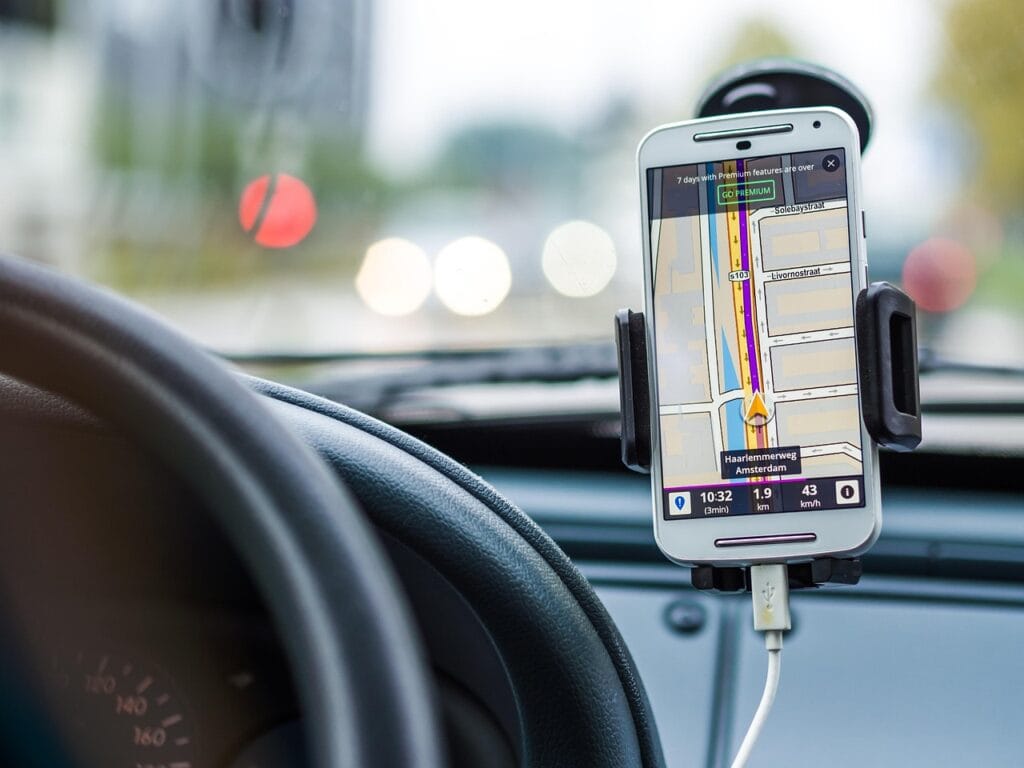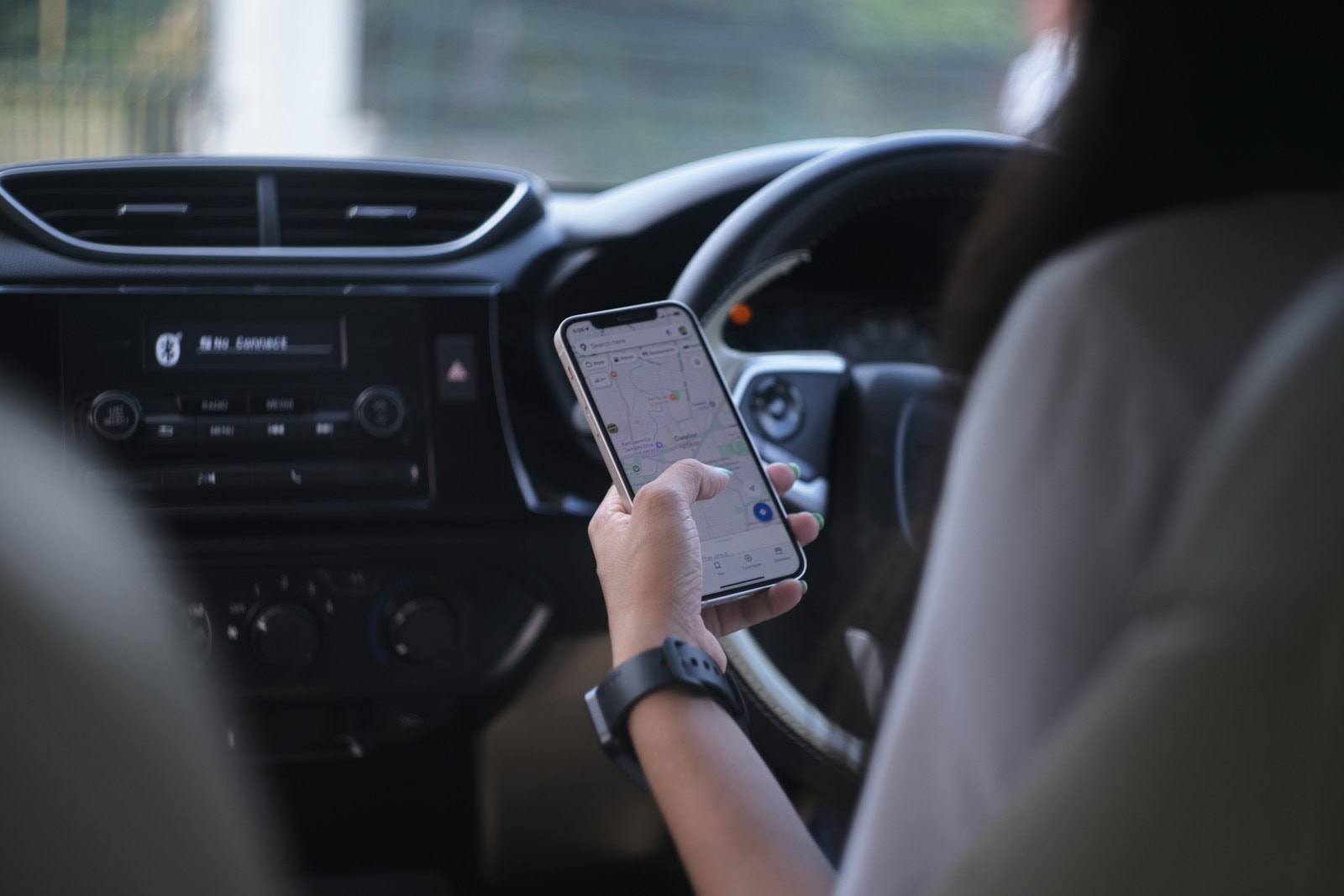If you’re driving in Michigan, you need to know the state’s hands-free law. Since June 30, 2023, Michigan has prohibited holding or manually using a cell phone while driving, making it a primary offense that can get you pulled over and ticketed. With over 30 years of experience handling distracted driving cases and securing more than $300 million for accident victims, The Joseph Dedvukaj Firm has seen the devastating consequences when drivers ignore these critical safety laws. This comprehensive guide explains everything Michigan drivers need to know about texting and driving laws, penalties, and your legal rights if you’re injured by a distracted driver.
Is Texting and Driving Illegal in Michigan?
Yes, texting and driving is illegal in Michigan. The Michigan hands-free law makes it unlawful to hold or manually use any mobile electronic device while operating a vehicle. This means you cannot hold a phone with your hands, arms, or shoulders while driving—even if you’re stopped at a red light or sitting in traffic.
The law specifically prohibits using your phone to:
- Make or answer telephone or video calls
- Send or read text messages or emails
- Watch, record, or send videos
- Access, read, or post to social media
- Browse or use the Internet
- Enter information into GPS or navigation systems
Michigan became the 26th state to adopt comprehensive hands-free driving laws when Governor Gretchen Whitmer signed House Bills 4250, 4251, and 4252 into law in 2023. This new legislation significantly expanded Michigan’s previous texting ban, which only prohibited reading or sending texts on handheld devices.
Understanding Michigan’s Hands-Free Law

What the Law Prohibits
Under Michigan law (MCL 257.602b), drivers cannot hold or support a mobile electronic device with any part of their hands, arms, or shoulders while operating a motor vehicle. “Operating” includes being stopped at traffic lights or in traffic—you’re only exempt when lawfully parked.
Even if your cell phone is mounted on your dashboard or connected to your vehicle’s built-in system, you cannot use your hands to operate it beyond a single touch. This restriction is critical—tapping your phone multiple times while it’s mounted still violates the law.
The Hands-Free Exception
Michigan law allows phone use while driving only if you’re using:
- Voice-operated or hands-free mode (like Siri or Google Assistant)
- Bluetooth technology integrated into your vehicle
- A properly mounted device that requires only a single touch to activate
You can use GPS or navigation features, but only through voice-activated commands. Manually entering addresses or scrolling through maps while driving violates the law.
Emergency Exceptions
You can use your cell phone to call or text 911 to report emergencies, including traffic accidents, medical emergencies, crimes, dangerous drivers, or serious road hazards. Law enforcement officers, firefighters, emergency medical technicians, and other first responders performing official duties are also exempt.
How Much Is a Ticket for Texting and Driving in Michigan?
The penalties for violating Michigan’s distracted driving law depend on your driving record and whether you caused an accident:
Standard Penalties:
- First violation: $100 fine and/or 16 hours of community service
- Second or subsequent violation: $250 fine and/or 24 hours of community service
- Second violation: 1 point on your driving record
- Third violation: 2 points on your driving record
- Three or more violations within 3 years: Required completion of a basic driver improvement course
Enhanced Penalties for Commercial Drivers:
Drivers operating commercial vehicles or school buses face significantly higher penalties:
- First violation: $200 fine and/or 32 hours of community service
- Second or subsequent violation: $500 fine and/or 48 hours of community service
Additionally, Michigan has adopted federal regulations imposing a $2,750 fine on truck drivers and school bus drivers who text or use cell phones while operating commercial vehicles.
Doubled Fines After Accidents:
If you’re at fault in a traffic crash while holding or using a mobile device, any civil fines are automatically doubled. This means a first violation could cost $200 instead of $100, and a second violation could cost $500 instead of $250.
Can You Use Your Phone at a Red Light in Michigan?

No, you cannot hold or manually use your phone at a red light in Michigan. The law defines “operate” to include driving or having physical control of a motor vehicle while temporarily stationary because of traffic, road conditions, traffic lights, or stop signs. You’re only exempt when your vehicle is lawfully parked.
Many drivers mistakenly believe that being stopped gives them permission to check texts or make calls. This is illegal and can result in a ticket. Officers can and do pull over drivers they observe using phones while stopped at intersections.
Is It Illegal to Talk on the Phone While Driving in Michigan?
Talking on a handheld phone while driving is illegal in Michigan for most drivers. However, you can talk on the phone while driving if you use hands-free technology like Bluetooth or voice-operated systems that don’t require you to hold the device.
Special Rules for Teen Drivers: Kelsey’s Law
Teen drivers with Level 1 or Level 2 graduated licenses (typically under age 17) face even stricter restrictions under Kelsey’s Law, which was enacted in 2013 after 17-year-old Kelsey Raffaele died in a cell phone-related accident.
Under Kelsey’s Law, teen drivers cannot use cell phones at all while driving—even with hands-free technology. The only exception is using a “voice-operated system integrated into the motor vehicle” itself. Violation of Kelsey’s Law is a civil infraction, but no fine or points are assigned to encourage parental enforcement without creating insurance consequences.
What Is Considered a Distracted Driver in Michigan?
Michigan law defines distracted driving broadly. While the hands-free law specifically addresses mobile electronic devices, distraction includes any activity that takes your attention away from driving safely. According to CDC findings on distracted driving, there are three main types:
- Visual distractions: Taking your eyes off the road
- Manual distractions: Taking your hands off the wheel
- Cognitive distractions: Taking your mind off driving
Texting is particularly dangerous because it involves all three types of distraction simultaneously. According to the National Highway Traffic Safety Administration (NHTSA) and Virginia Tech Transportation Institute, driver inattention is the leading factor in most crashes and near-crashes.
Is Eating and Driving Illegal in Michigan?
Eating and driving is not explicitly illegal in Michigan under the hands-free law. However, if eating causes you to drive recklessly or dangerously, you could be cited for careless driving or other traffic violations. If eating while driving contributes to an accident that injures someone, you may face serious legal consequences and civil liability.
The same principle applies to other distracting activities like drinking beverages, smoking, adjusting the radio, dealing with pets, or attending to children. While not specifically prohibited by the hands-free law, these activities can support negligence claims if they contribute to accidents.
Michigan Distracted Driving Statistics: Why These Laws Matter
The hands-free law is already making Michigan roads safer. According to Michigan Traffic Crash Facts data:
- Driver-distracted crashes fell 16.4% from 18,096 in 2019 to 15,136 in 2023
- Crashes caused by communications and electronic devices dropped 19.1% from 4,826 in 2019 to 3,902 in 2023
- Distracted-driving deaths jumped from 42 in 2006 to 59 in 2021, highlighting the growing danger
Despite this progress, distracted driving remains a serious threat. Drivers who are texting are 23 times more likely to be involved in a crash, according to the Virginia Tech Transportation Institute. The science shows that texting drivers can be more dangerous than drunk drivers.
Primary Offense: What This Means for Enforcement
Michigan’s hands-free law makes distracted driving a primary offense. This means police officers can stop and ticket you solely for holding or using a mobile device while driving—they don’t need another reason to pull you over.
However, the law explicitly prohibits officers from searching your vehicle or occupants based solely on a distracted driving violation. This protection ensures the law targets dangerous behavior without creating Fourth Amendment concerns.
Your Legal Rights After a Distracted Driving Accident
Civil Liability for Distracted Drivers
If a distracted driver causes an accident that injures or kills someone, they face serious legal consequences beyond traffic tickets. Victims can pursue:
- Pain and suffering compensation: For physical and emotional injuries meeting Michigan’s “serious impairment of body function” threshold
- Economic damages: Medical bills, lost wages, and other financial losses
- Wrongful death damages: When distracted driving causes fatalities
Our firm has successfully represented thousands of clients injured by distracted drivers, securing substantial compensation for their losses.
Criminal Penalties for Causing Injury
Distracted drivers who cause accidents resulting in serious injuries or death may face criminal charges:
- Death caused by distracted driving: Misdemeanor punishable by up to one year in jail and/or $2,000 fine
- Serious impairment of body function: Misdemeanor punishable by up to 93 days in jail and/or $500 fine
- Additional points on driving record: 4 points for accidents causing death or serious injury
Owner Liability and Employer Responsibility
Michigan’s owner liability law holds vehicle owners responsible for injuries caused by drivers using their vehicles with permission. Additionally, employers can be held liable under respondeat superior when employees cause accidents while driving for work purposes.
Remote Texter Liability: An Emerging Legal Theory
Michigan law doesn’t explicitly address remote texter liability—the concept that someone who texts a driver knowing they’re likely to read and respond while driving may be held liable if the driver causes a crash. However, this theory has gained traction in other jurisdictions and poses significant risks, particularly for businesses that regularly communicate with drivers via text.
Common Questions About Michigan’s Texting and Driving Law
Can I use my phone’s Do Not Disturb feature while driving?
Yes, and it’s highly recommended. Using your phone’s Do Not Disturb mode or silencing calls and texts helps resist temptation and keeps you focused on driving.
What if my phone rings while I’m driving?
You can answer calls using voice commands through hands-free technology. Simply saying “Hey Siri” or “OK Google” to answer calls is legal. However, picking up and holding your phone to answer is illegal.
Can I hold my phone while legally parked?
Yes. The law explicitly states that “operate” does not include vehicles that are lawfully parked. Once you’re legally parked, you can use your phone normally.
Does the law apply in parking lots?
The law applies to motor vehicles operated on public roads, streets, and highways. Private property like parking lots may not fall under the statute, but you should still avoid distracted driving everywhere for safety.
What about using my phone for music?
You can control music through voice commands or with a single touch if your phone is mounted. However, scrolling through playlists or manually searching for songs while driving violates the law.
How The Joseph Dedvukaj Firm Can Help
As Michigan personal injury attorneys with three decades of experience, we understand how devastating distracted driving accidents can be. We’ve handled hundreds of cases involving texting and driving, securing substantial compensation for our clients while holding negligent drivers accountable.
Our services include:
- Free consultation and case evaluation
- Thorough investigation to prove distracted driving
- Expert testimony regarding phone records and accident reconstruction
- Aggressive negotiation with insurance companies
- Trial representation when necessary
- No fee unless we win your case
If you’ve been injured by a distracted driver, evidence is critical and time is limited. Phone records, witness statements, and accident scene evidence can disappear quickly. Learn what to do immediately after a car accident to protect your rights.
Preventing Distracted Driving: Practical Tips
Knowing the law is important, but preventing distracted driving requires conscious effort:
- Put your phone in the glove box or back seat before driving
- Enable Do Not Disturb mode automatically when driving
- Set up hands-free systems before starting your trip
- Pull over to a safe location if you need to use your phone
- Ask passengers to handle calls, texts, and navigation
- Avoid eating, drinking, and other distractions while driving
Remember: no text, call, or notification is worth risking your life or the lives of others on the road.
Taking Legal Action: Your Next Steps
If you or a loved one has been injured by a distracted driver who violated Michigan’s texting and driving law, you deserve experienced legal representation. The Joseph Dedvukaj Firm has the knowledge, resources, and track record to maximize your compensation while holding negligent drivers accountable.
Contact us today for a free consultation:
- Call 1-866-HIRE-JOE (24/7 availability)
- Immediate case evaluation
- No fee unless we win
- Over $300 million recovered for clients
Don’t let a distracted driver’s negligence go unpunished. We’ll fight to ensure you receive full compensation for your injuries, lost wages, medical bills, and pain and suffering.
Disclaimer: This article provides general information about Michigan’s texting and driving laws. Every case is unique, and this content should not be considered legal advice. Contact The Joseph Dedvukaj Firm for specific guidance regarding your situation.
Meta Description: Complete 2025 guide to Michigan texting and driving law, hands-free requirements, penalties, and fines. Learn your legal rights after a distracted driving accident. Call 1-866-HIRE-JOE.


